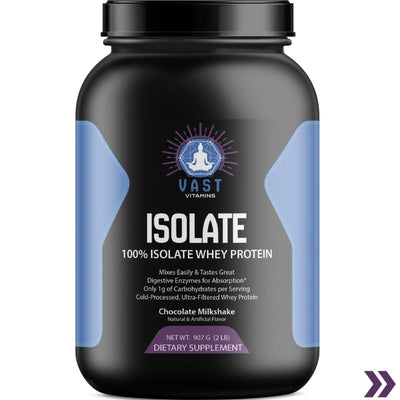Top Six Causes of Sleep Deprivation.
There are many causes of sleep deprivation. Some people have trouble falling asleep, while others wake up frequently during the night. Poor sleep habits, stress, and anxiety can all lead to poor sleep quality and quantity. Additionally, certain medical conditions and medications can cause sleep deprivation.With that being said here are a few common causes of sleep deprivation:
- working long hours
- caring for a young child or an elderly parent
- stress from work or personal life
- health problems such as pain, sleep apnea, or restless leg syndrome
- drinking alcohol or caffeine before bed
- using electronic devices in bed
No one size fits all sleep requirements!
In a study described by the British Journal of Psychiatry, researchers have discovered that increasing sleep time by just half an hour could make a considerable difference to aggressiveness and the ability to concentrate among primary school students.
Teenagers – need about nine to 10 hours too. Teenagers have an increased sleep requirement at a time when social engagements and peer pressure cause a reduction in sleep time. Lifestyle factors such as early school start times deprive them of the required sleep. There is evidence that around the time of becoming a teenager, there is a shift in the sleep-wake cycle to being sleepy later in the evening with a preference for waking later.
Adults – need about eight hours, depending on individual factors. We tend to need less sleep as we age but be guided by your own state of alertness – if you feel tired during the day, aim to get more sleep.
How well do you sleep? Start optimizing for success!
Sleep is important to our health and well-being. Getting enough sleep helps us stay focused and alert during the day. It also improves our mood and reduces stress levels. Sleep deprivation leads to fatigue and poor decision-making. There are many ways to get more restful sleep including:
Going to bed at the same time every night. Try not to watch TV or read in bed before going to sleep. Have a relaxing bath or shower instead. Avoid caffeine after lunch. If you need to wake up early, try getting out of bed 15 minutes earlier than usual. Keep your room cool and dark. Make sure your bedroom is quiet and free from noise. Turn down the thermostat.
Get regular exercise. Eat healthy foods like fruits and vegetables. Take a hot shower or bath before bed. Relaxing music can help you drift off to sleep. Consider seeing a doctor about sleep problems. Find out more with our free sleep eBook. This eBook will help you understand what happens when you sleep and why it matters. You'll also find tips and tricks to help you get a better night's rest.
Lack of Sleep Could be Making You Less Productive Than You Realize!
The effects of sleep deprivation are numerous and serious. They include:
- reduced alertness
- shortened attention span
- slower than normal reaction time
- poorer judgment and reduced awareness of the environment and situation
- These effects can lead to reduced decision-making skills
- poorer memory
- reduced concentration
- increased likelihood of mentally fog or fixating on one thought
- increased likelihood of moodiness and bad temper
- reduced work efficiency
- loss of motivation
- errors of omission: Errors of omission are mistakes that are made by leaving something out.
- errors of commission: Errors of commission are mistakes that are made on purpose. For example, if you type a wrong letter on the keyboard, that's an error of commission.
- microsleep: Microsleep is a brief episode of sleep that can happen when a person is very tired. During microsleep, a person can briefly fall asleep and not be aware of it.
Do different studies describe sleep deprivation differently?
Sleep deprivation refers to the total amount of time that someone falls asleep at night. A more accurate term would be “sleeping inadequacy." Many people are well-rested because they get 7 or more hours of sleep per night.
In this way, sleep deficiency applies to a wider variety of situations. For instance, someone who sleeps for a total of eight hours but with many awakenings that cause their sleep to fragment may have insufficient sleep while their sleep duration technically meets the amount of recommended sleep..
This terminology might be different from a day-to-day conversation in which this term is usually employed. It signifies inadequate sleep overall rather than only the particular duration of sleep.
In the medical world, studies can use different technical definitions of sleep deprivation. Some researchers consider seven hours or fewer of sleep, while others consider six hours as the cutoff.
The Different Types of Sleep Deprivation.
Short-term or long-term sleep deficiency can be categorized as it affects different individuals in different ways. Short-term sleep deficiency occurs from a brief reduction in the range of sleep hours; long-term sleep deficiency indicates a continued reduction in the number of hours spent sleeping.
Chronic sleep deprivation, or insufficient sleep syndrome, is described by the American Academy of Sleep Medicine as interrupted sleep that persists for 3 months or longer. Chronic difficulty getting enough sleep or disturbed sleep on account of sleep fragmentation or other reasons may describe ongoing sleep deficiency or disrupted sleep, respectively.
Let's Clear Up The Difference Between Sleep Deprivation And Insomnia.
Insufficient sleep and insomnia are two different sleep disorders, and experts in this field make a distinction between them. Those suffering from insomnia find it hard to fall asleep even when they have ample time to sleep; those afflicted with sleep deprivation do not have sufficient time for sleep as a result of additional actions they take or professional responsibilities they're weighed down by.
To illustrate an example, people who have a busy work schedule often have no difficulty sleeping longer on weekends in order to catch up on sleep. A person with insomnia, can still not fall asleep despite having the opportunity to do so.
The symptoms of sleep deprivation and insomnia overlap, but there are more specific diagnoses that can be applied by a physician or a sleep specialist.
Your central nervous system needs sleep to function correctly.
Your central nervous system is the main transmitter of information in your entire body. Sleep is vital for keeping your central nervous system functioning correctly, but long-term insomnia can interfere with how the body normally transmits and processes information.
During sleep, neural paths form between neurons in your brain that help you process the new knowledge you have learned. A lack of sleep leaves your brain exhausted, thereby impairing its ability to carry out its tasks accordingly.
You may wind up having difficulty concentrating or learning new things as well. Your bodily signals may also be sluggish, reducing your energy and increasing your risk of accidents.
Sleep deprivation can significantly affect a person’s mood and levels of patience. One can be prone to mood swings and inadequate decision-making. On the other hand, a lack of sleep can also hamper creativity.
If you continue to go without proper sleep for a long time, you might start having hallucinations of seeing or hearing things that aren't real. A lack of sleep can also cause mania in people with bipolar disorder. Other psychological risks include being unable to remember anything you learned.
You may lose consciousness in short intervals during the day. During such episodes, you might fall asleep for a few seconds or longer without feeling it.
Microsleep is entirely out of your control and can be dangerous if you are driving. It can also make you more susceptible to injuries if you operate heavy machinery at work and have an episode.
Your immune system is hard at work while you sleep!
Your immune system produces immune-boosting substances, such as cytokines and antibodies while you're sleeping. These substances vigorously combat foreign invaders, such as bacteria and viruses.
Cytokines also help your body to fall asleep, enhancing the power of your immune system to prevent unnecessary illness.
Sleep deprivation prevents your immune system from building up its forces. If you do not have sufficient rest, your immune system won't be able to adapt to the invading forces you face, and it will even slow your healing after illness or injury.
Chronic conditions such as diabetes and cardiovascular disease are more likely to develop with long-term sleep loss.
Endocrine system Get the Rest You Need for Optimum Hormone Production
Hormone production is contingent on your rest cycle. Testosterone production requires at the very least 3 hours of uninterrupted sleep, which is approaching the time of your first R.E.M. episode. Waking up throughout the night can affect hormone production.
This interruption can also hamper biosynthesis of growth hormones, especially in the young. These hormones play an essential role in the development and repairing of cells and tissues, along with other important functions.
The pituitary gland releases growth hormone throughout the day, while adequate sleep and exercise also aid its release.
How is sleep deprivation diagnosed?
Some specialist in the field of sleep has said that one of the main indicators of sleep deprivation is feeling drowsy during the day. Even if you are not doing a task you like, you will be able to work steadily on a tedious task as long as you are not sleep-deprived. If you regularly fall asleep within a few minutes of hitting the bed, then you are likely to have significant sleep deprivation. People who suffer from sleep loss also have microsleeps. Unlike normal sleep, brief periods of sleep occur when a person is awake. Lots of people who stay awake for extended periods of time may not even be aware of having short microsleeps.
If you have any of the warnings noted here, see your doctor or call to ask for a referral to a sleep specialist. Your doctor will ask questions to further understand your sleeping problems.
If your medical professional thinks you might have a more severe sleep disorder, such as a sleep breathing disorder called sleep apnea, then the sleep specialist may perform a sleep study (polysomnography). This test actually measures your breathing, heart rate, and other vital signs for an entire night's sleep. A sleep specialist can examine your information and identify the cause of any underlying problems you have.
How is sleep deprivation treated?
Treatments depend on the severity of the sleep disorders. In many cases, your medical practitioner may assist you in self-regulating and controlling sleep disorders before turning to medicine. He or she may prescribe sleeping pills. However, be aware that they can become less effective with time. Sometimes insomnia is caused by a circadian rhythm disorder. Your physician may recommend light therapy to help your body's circadian rhythm return to normal and make it easier for you to get a good night's rest.
If you're diagnosed with obstructive sleep apnea, your doctor may prescribe a special breathing machine that you use while you're sleeping. It's called CPAP (continuous positive airway pressure). This machine and mask enable airways to stay open.
Signs of Sleep Deprivation conclusion.
In conclusion, there are many signs and symptoms of sleep deprivation. It is important to be aware of them and take steps to get the appropriate amount of sleep. To improve sleep quality, avoid caffeine and alcohol before bed, create a relaxing bedtime routine, and keep a regular sleep schedule.
FAQ On Signs of Sleep Deprivation
What are the symptoms of sleep deprivation?
Symptoms of sleep deprivation in adults include:
- Constant yawning
- The tendency to doze off when not active for a while; for example, when watching television
- Grogginess when waking in the morning
- Sleepy grogginess experienced all day long
- Poor concentration and mood changes
- more irritable
Are there supplements that can help?
Short answer is yes. Magnesium Glycinate, 5-HTP and Ashwagandha with Black Pepper are all great for relaxing the body and making it easier to sleep.
What is Sleep Deprivation?
Sleep deprivation is a general term to describe a state caused by inadequate quantity or quality of sleep.Including voluntary or involuntary sleeplessness as well as circadian rhythm sleep disorders.
What are the consequences of sleep disruption?
Insufficient sleep, inadequate quality of sleep or disruptions to the sleep-wake cycle (such as those that occur with shift work or travelling to a different time zone) have consequences for how we function in the daytime, causing sleepiness and fatigue.
What Causes Sleep Deprivation?
Common causes of sleep deprivation include: Personal choice – some people don’t realise that the body needs adequate sleep.
What Causes Insomnia?
Medications – some drugs used to treat disorders such as epilepsy or attention deficit hyperactivity disorder (ADHD) can cause insomnia.
What are the effects of sleep loss?
Just two-hour sleep loss can have a major impact including:
- Reduced alertness
- Shortened attention span
- Slower than normal reaction time
- Poorer judgement
- Reduced awareness of the environment and situation
- Reduced decision-making skills
- Poorer memory
- Reduced concentration
- Increased likelihood of mentally ‘stalling’ or fixating on one thought
- Increased likelihood of moodiness and bad temper
- Reduced work efficiency
- Loss of motivation
- Errors of omission
- Errors of commission
- Microsleep
What are the effects of sleep loss?
- poor concentration
- weight gain
- low energy
- poor immune system
- And many other unwanted health problems.
What are the risks?
Sleep problems in teenagers are associated with an increased risk of disorders such as depression and attention deficit hyperactivity disorder (ADHD).
What are the benefits of starting school later?
Later start times at school result in reduced daytime sleepiness, higher grades, and reduced negative feelings.
What is Sleep Deprivation?
Sleep deprivation is when you don't get the sleep you need. It's estimated to affect around one-third of American adults, a problem that has only worsened in recent years.
What is sleep deficiency?
The terms sleep deficiency or sleep insufficiency are more frequently used to describe factors that reduce the quantity and/or quality of sleep. This keeps a person from waking up feeling refreshed.
What is Acute Sleep Deprivation?
Acute sleep deprivation refers to a short period, usually a few days or less, when a person has a significant reduction in their sleep time.
What is insufficient sleep syndrome?
Chronic sleep deprivation, also known as insufficient sleep syndrome, is defined by the American Academy of Sleep Medicine as curtailed sleep that persists for three months or longer.
What Causes Sleep Deprivation?
Sleep deprivation is often driven by voluntary choices that reduce available sleep time.
What Causes Sleep Deficiency?
Sleep deficiency may be caused by other sleep disorders or medical conditions.
What are the symptoms of sleep deprivation?
The primary signs and symptoms of sleep deprivation include excessive daytime sleepiness and daytime impairment such as reduced concentration, slower thinking, and mood changes.
What Are The Benefits Of Sleep?
Sleep is crucial for overall health and well-being. It helps the body to restore and rejuvenate. It plays an important role in learning and memory. Sleep also helps to regulate mood and stress levels.
What are the health effects of sleep deprivation?
Science has linked poor slumber with a number of health problems, from weight gain to a weakened immune system.
What Causes Sleep Deprivation?
In a nutshell, sleep deprivation is caused by consistent lack of sleep or reduced quality of sleep.
What is sleep?
Sleep is a naturally recurring state of mind and body, characterized by altered consciousness, reduced muscle activity, and reduced response to external stimuli. It is distinguished from wakefulness by a decreased ability to react to stimuli, and is accompanied by a number of physiological changes.
What is sleep disruption?
Sleep disruption is a condition that results in difficulty falling or staying asleep. This can lead to fatigue, irritability, and problems with concentration and memory..
What are the psychological risks?
You may also end up experiencing microsleep during the day.
What are the dangers of microsleep?
Microsleep is out of your control and can be extremely dangerous if you’re driving.
What does sleep do for your immune system?
Certain cytokines also help you to sleep, giving your immune system more efficiency to defend your body against illness.
What are the health effects of sleep deprivation?
As you wake up throughout the night, this can cause sleep deprivation, which leaves you more vulnerable to respiratory infections like the common cold and flu.

















































































































